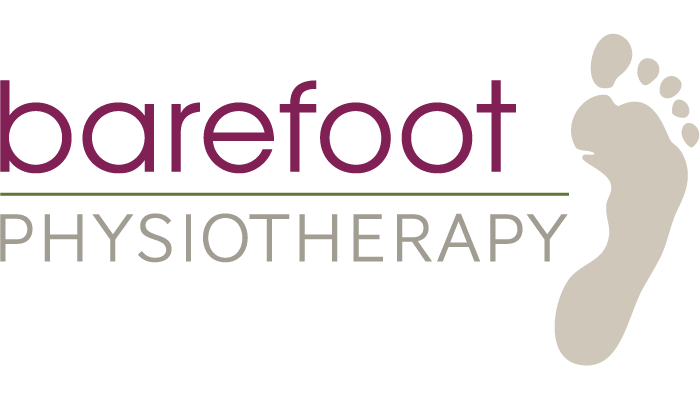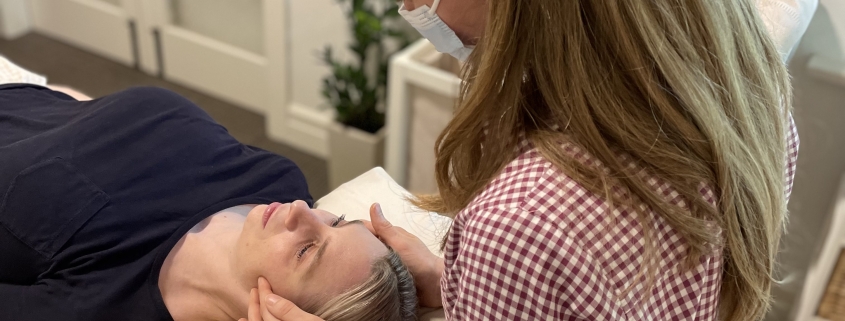Physiotherapy for TMJ
What Is TMJ?
Have you ever wondered if something is wrong with your jaw, or asked yourself “why is my jaw clicking?” Perhaps you have been told by your doctor or dentist that you have something called “TMJ dysfunction.” What does this actually mean? And how can Physiotherapy help your TMJ ?
What is TMJ dysfunction?
First, to answer this question, we need to answer a different question: “what is the TMJ?” TMJ stands for temporomandibular joint (no wonder we abbreviate it, hey?!). This is the joint connecting our temple bone to our mandible, or jaw bone, and we have two of them – one for either side of our face, and they are located just in front of our ear canals. Like any joint, there are multiple structures that make up the joint, including: ligaments, cartilage disc, and of course the bones.
Our TMJ is the most used joint in the body! It not only opens and closes, but can also move but side-to-side, and in forward-and-backward directions, meaning it can create many complex movements. This joint is involved in any activity we use our mouth for, including chewing, talking, singing, yawning, and facial expressions.
When there is a problem with the TMJ, it is referred to as TMJ dysfunction or a temporomandibular disorder (TMD).
What causes TMJ symptoms?
TMJ dysfunction is an umbrella term encompassing many different causes of TMJ symptoms. These may be due to:
Trauma to the joint
Myofascial causes – changes to the musculature surrounding the joint/s. For example, this may arise due to:
- Habits such as bruxism (grinding teeth) or clenching the jaw. This can commonly arise with chronic stress and anxiety
- Poor posture of the head, neck and/or jaw
- Strain from eating habits – e.g. too large bites, from hard or chewy foods, eating on only one side of the mouth
Intra-articular causes – changes within the joint as a result of inflammation or mechanical changes to the joint itself
- Autoimmune and inflammatory conditions affecting the jaw (e.g. osteoarthritis, rheumatoid arthritis, ankylosing spondylitis, lupus)
- Hypermobility disorders affecting the jaw joint
- Internal derangement (abnormal relationship of the TMJ disc to any of the other components of the joint)
What are the symptoms of TMJ dysfunction?
There can be several different symptoms associated with TMJ dysfunction, and may include any combination of:
- Jaw pain and/or tightness
- Jaw clicking, popping or grinding of the jaw during use
- Limited mouth movements, including reduced ability to open the mouth wide or close the mouth
- Neck pain and/or stiffness
- Headaches
- Ear pain
- Tinnitus (ringing in ears)
- Aural fullness (a feeling of blocked ears)
- Dizziness or vertigo
So many important structures are housed in the head, the jaw joints being just one of them. We also have eyes, ears, balance organ (vestibular system) and a number of muscles. With so many sensitive and important structures housed so closely together and sharing common nerve supply pathways, problems arising in one of these structures (like the jaw) can also cause symptoms from these other structures.
How can a physio help with TMJ dysfunction?
Physiotherapy for TMJ includes a variety of treatment options, you can firstly expect your physiotherapist to assess the range of movement of your jaw and neck. They will also conduct a thorough assessment of the muscles and joints of these areas to help form a personalised treatment plan for you. Treatment may entail:
- Releasing jaw muscles and teaching you how to do this yourself with external or internal jaw releases
- Hands-on treatment around the neck, jaw and head to relax involved muscles and joints
- Teach you a comfortable resting jaw position and/or neck position
- Exercises to retrain and strengthen your jaw muscles as appropriate
- Advice around chewing and eating, such as avoid chewing gum, or switch to softer food choices and smaller bites
- Breathing exercises to help de-load overactive neck muscles that may be contributing to excessive jaw tension
- Stress-management strategies
- May recommend sourcing and trialling a mouthguard or splint to help reduce stress through the TMJ with grinding or clenching
If you have been experiencing pain in your jaw and are searching for ways to manage and improve your quality of life, book in with a Barefoot physiotherapist. Our Physiotherapy treatment for TMJ aims to understand the different factors contributing to your jaw symptoms to personalise treatment for you.








Leave a Reply
Want to join the discussion?Feel free to contribute!